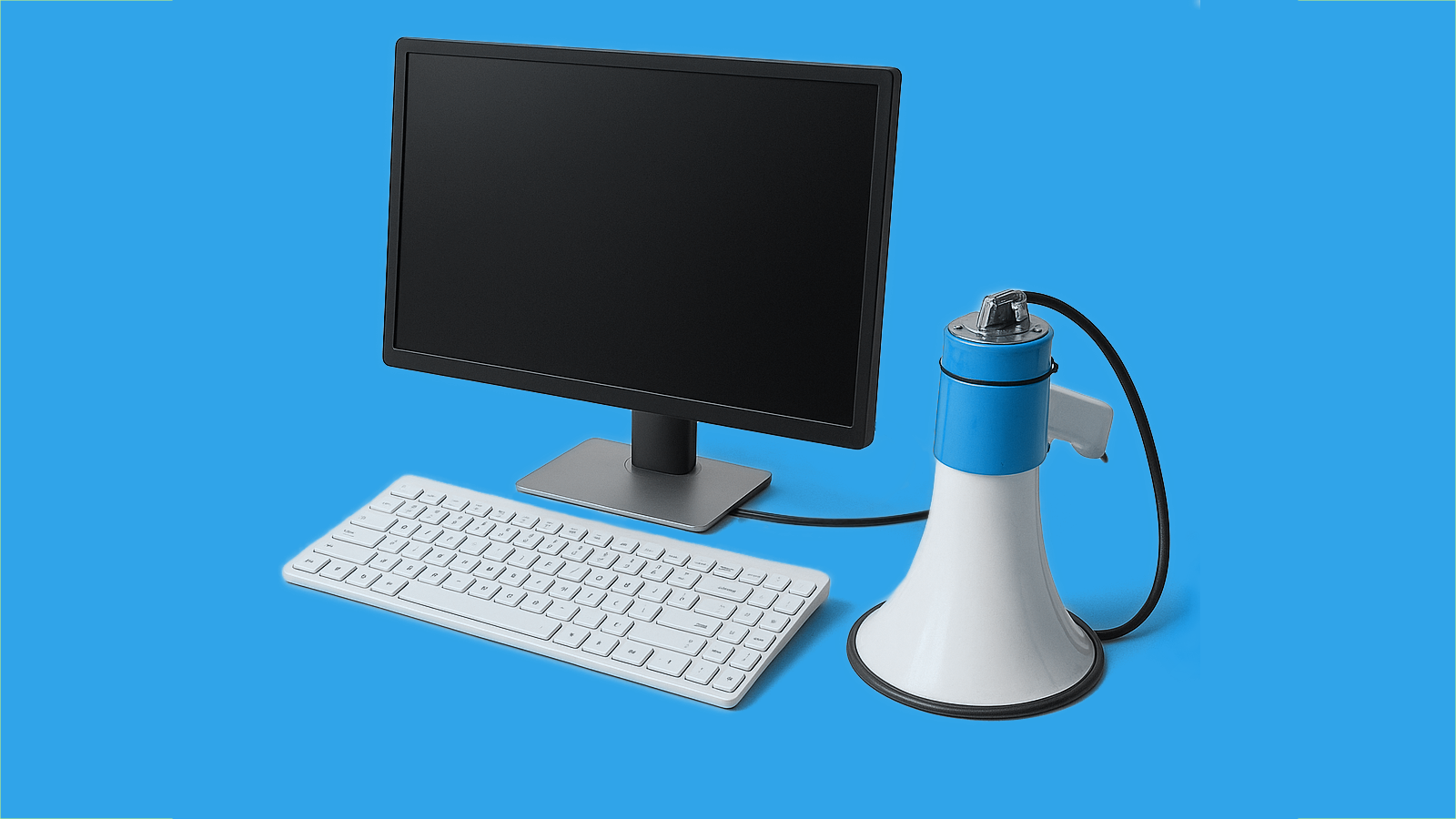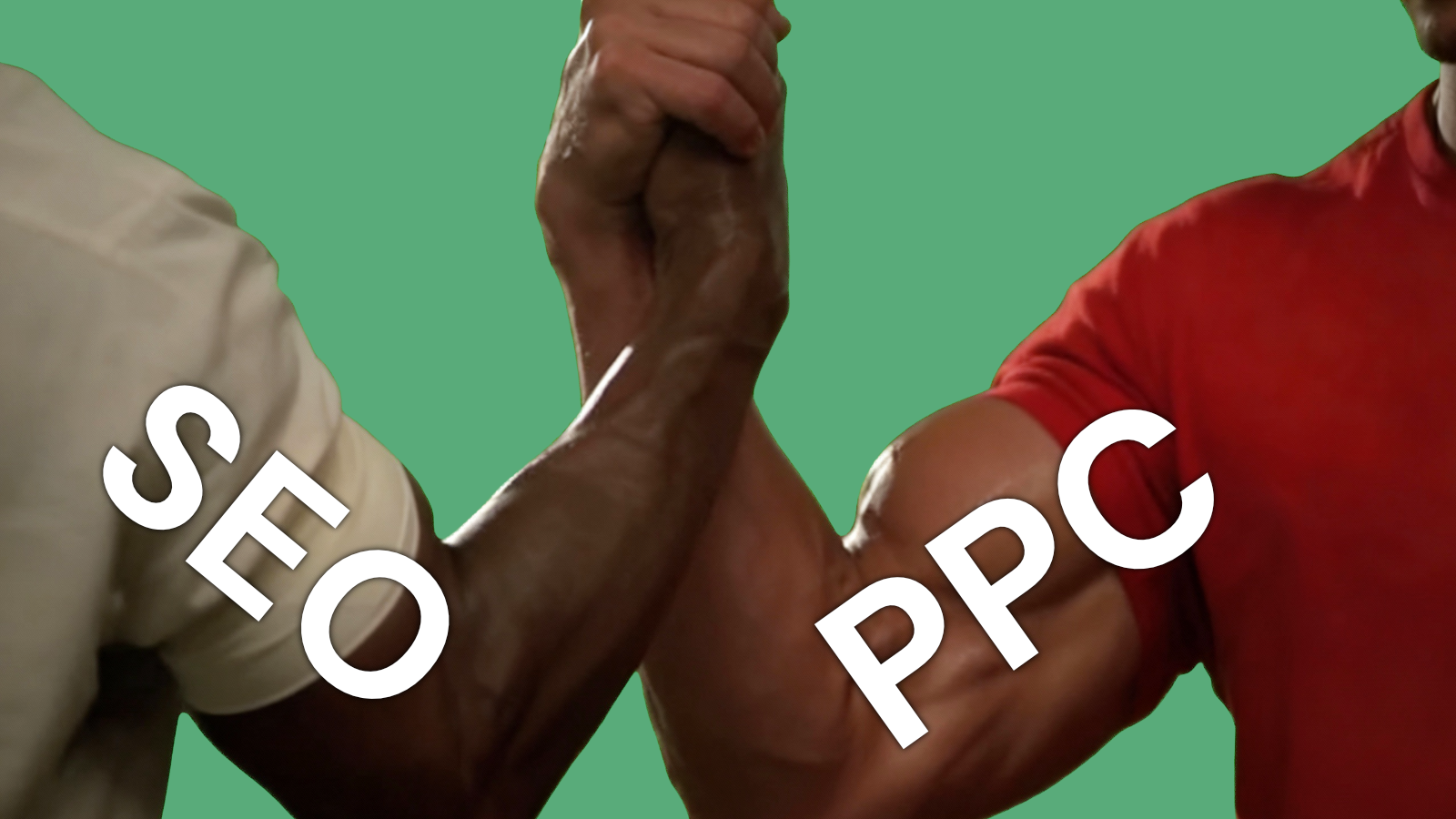Ever wonder how some businesses always seem to appear at the top of Google when you search for products or services? That’s no accident—it’s search advertising in action, and it’s a powerful tool for small businesses to get noticed by potential customers. Search ads let you talk directly to people interested in what you’re offering right at the point they need it the most.
Contents
- What Is Search Advertising?
- Paid vs. Organic Search Results (Just what is “SEO” anyway?)
- How Search Ads Actually Work
- The Art of Creating Effective Search Ads
- Why Search Matters For Small Businesses
- Getting Started with Search Advertising
- Taking the Next Step with Search Advertising
- Key Terms to Know
What Is Search Advertising?
Search advertising (also called “pay-per-click” or PPC) lets you place ads on search engines like Google and Bing. Unlike most types of advertising where you pay regardless of results, with search ads you only pay when someone actually clicks on your ad.
Search advertising is a digital marketing method where businesses bid on keywords to display ads on search engine results pages. You pay only when someone clicks your ad, hence the term “pay-per-click” (PPC).
It works so well because when someone searches “plumber near me” or “best Italian restaurant,” they’re actively looking for something specific. By targeting your ad to those search queries, you can offer your services directly to the customer right when they need it the most.
Paid vs. Organic Search Results (Just what is “SEO” anyway?)
When you search for something on Google, you’ll notice two types of results:
- Paid results (marked with an “Ad” label) typically appear at the top of the page. These are from businesses that bid on keywords related to the search.
- Organic results are the results that are shown because Google’s algorithm thinks they are relevant to the search – nobody pays for these results.
You can try to earn free organic traffic to your site using “Search Engine Optimisation” (SEO). This basically means having pages on your website that Google finds useful enough to show; however, this usually takes a lot of time and expertise to earn top positions.
While a strong SEO strategy can help bring lots of traffic to your site in the long term, search ads offer immediate visibility. For newly established businesses or competitive industries, waiting months for organic rankings isn’t always possible. Search ads put you at the top of results from day one.
How Search Ads Actually Work
Search ads are sold in a special type of auction that happens in a few milliseconds. It’s all automated and happens behind the scenes, but a simplified process is:
- You select keywords relevant to your business
- You create ads for your business that relate to those keywords
- You set how much you’re willing to pay for a click (your bid)
- When someone searches using your keywords, an instant auction happens where Google determines which ads to show
- If someone clicks on your ad, then you pay the amount you bid
How does Google decide which ads to show and in what order? Google will look at all the advertisements it has targeting those keywords, then tries to work out which ads are the most relevant to that search based on both the content of the ad and where people go when they click the ad (the “landing page”). It turns this into a “Quality Score” and combines it with the amount you bid to produce the “Ad Rank” – the higher the Ad Rank, the higher up the page your ad is shown.
This is great news for small businesses because it means that if you have highly relevant ads that match what people are searching for, you can compete with bigger companies without having to match their budget.
For example, let’s say someone searches for “fresh bread delivery.” The local bakery offering deliveries to the area is probably going to rank higher than a giant multinational food company who just has a generic ad for their generic bread, even if they have very different advertising budgets.
Quality Score acts like a modifier on your bid. If you multiply your Quality Score by your bid, you get an idea of the Ad Rank. This shows why ad quality matters so much. For example, a £2 bid can beat a £10 bid by quality alone:
- A 1/10 low quality ad bids £10 and is scored 10 (1×10)
- A 9/10 high quality ad could bid £2, scoring 18 (9×2) and winning the auction
The Art of Creating Effective Search Ads
As we’ve seen, the relevance and quality of your ads has a big effect on the effectiveness of your Search campaigns.
Relevance Is King
Google rewards ads that directly address the search query. For example, if someone searches for “emergency plumber in Bristol,” an ad specifically mentioning “24/7 Emergency Plumbers in Bristol” will perform better than a generic “Plumbing Services” ad.
Clear, Compelling Text Matters
The text of your ad needs to grab people’s attention and make them want to click.
Your ad text needs to:
- Include your keywords, ideally in the headline
- Highlight your unique selling points which make you better than your competitors
- Feature a strong call-to-action like “Book Now” or “Get a Free Quote Today”
Landing Page Consistency
Where you send people after they click is just as important as the ad itself – your landing page should deliver exactly what your ad promised. If your ad mentions “50% off winter jackets,” your landing page should feature those discounted jackets prominently, not your general homepage.
For example, a local landscaping company bidding on “tree pruning service” with an ad specifically mentioning tree pruning (linked to a dedicated tree pruning service page) will probably perform better than a national chain with a generic “landscaping services” ad, even if the national chain bids more per click.
Why Search Matters For Small Businesses
If you’re in charge of marketing for a small business, you have a lot of options; everything from print ads in your local paper to Facebook ads shown across the globe. But Search offers a few unique advantages that make it worth considering.
1. Reach People Actively Looking For You
A lot of advertising works by interruption; being shown to people while they’re doing something else (like watching TV), but Search ads only appear when someone is actively looking for your products or services. This means the people who see your ads have already shown interest or intent—they’ve essentially raised their hand saying “I’m interested in this.”
2. Control Your Budget
You can set a daily budget that works for your business. Since you only pay when someone clicks, as little as a few pounds a day can yield meaningful results. You can start small, see what works, and scale up gradually as your revenue grows.
3. Immediate Results and Data
A lot of marketing channels can take months to show impact. As we said above, SEO can take months to gain traction. But Search ads can drive traffic within hours of launching. Plus, you’ll get detailed analytics to understand what’s working and what’s not, allowing you to refine your approach based on real and timely data.
4. Target Locally
One of the great things about search advertising is the ability to target your ads to specific locations, so ads are only shown to people for whom it’s relevant, and this especially matters for locally relevant keywords.
For example, a plumber in Leeds using search ads can reach people specifically searching for “plumber in Leeds” or “emergency pipe repair near me” — they won’t target someone looking for plumbers in Aberdeen, and they don’t need to target everyone in Leeds currently scrolling social media and hope one of them needs a plumber.
5. Level the Playing Field
Even with a modest budget, you can compete with larger businesses by focusing on niche keywords and creating highly relevant ads. As we showed above, the impact of relevance and Quality Score on the Ad Rank algorithm means you can compete and win in auctions against competitors with much more money to spend.
Getting Started with Search Advertising
Want to try Search ads but not sure where to start? Not to worry, we’ve got you covered:
DIY Approach
Pros: Complete control, no management fees, valuable learning experience.
Cons: Steep learning curve, time-consuming, risk of wasting budget on mistakes.
If you’re hands-on and have time to learn, platforms like Google Ads are accessible to (almost) everyone, so you absolutely can do it yourself. We recommend starting with a small budget, £5-10 a day, and focusing on very specific keywords that are highly relevant to your business.
But you should be aware that the interface isn’t the best for beginners, and there’s a lot of detailed technical knowledge that you can easily get lost in.
Begin with “exact match” keywords that specifically relate to your core offerings. This helps control costs while you learn the ropes.
Hiring a Freelancer or Consultant
Pros: Specialised expertise, personalised attention, more affordable than agencies.
Cons: Quality varies widely, limited capacity for account management.
A good consultant can quickly set up campaigns and even train you on basics. But the downside is that quality can vary, and you might not be in a position to understand what quality you’re getting.
Hire An Agency
Pros: Comprehensive service, team of experts, professional tools and reporting.
Cons: Higher costs, may have minimum spend requirements, potentially less personal attention.
Agencies handle everything from keyword research to ad creation and optimisation. Look for one with experience serving small businesses, but be prepared that you will probably need to meet a minimum spend and sign a contract before an agency will take you on as a client.
Digital Gurus Solution
At Digital Gurus, we understand the challenges small businesses face when trying to manage search advertising campaigns. That’s why we’ve developed a solution designed to make digital advertising accessible to small businesses without technical expertise.
We’ve simplified the process so ordering a campaign is as straightforward as ordering a takeaway—no complex settings to navigate, no industry jargon to decipher. Just tell us your needs and we’ll handle all the fiddly technical bits.
Our approach combines smart technology with human expertise. Our team of experienced digital marketing specialists monitors your campaigns, making adjustments to maximise performance and ensure you’re getting the best possible return on your investment.
With no account fees, contracts, or lock-ins, you can try our service with confidence. We’ve found that even modest budgets can drive significant results when ads are properly optimised and targeted. Most of our small business clients start seeing quality leads within 2-3 weeks of launch.
Taking the Next Step with Search Advertising
Search advertising offers small businesses a powerful way to reach customers at the perfect moment—when they’re actively searching for products or services like yours. With the ability to control costs, target precisely, and measure results, it’s an ideal marketing channel for growth-minded small businesses.
Whether you decide to learn the ropes yourself or partner with experts, the key is to start small, measure everything, and refine your approach based on results. Remember that your success depends not just on your budget, but on creating relevant, compelling ads that speak directly to what your potential customers are searching for.
If you’d like to learn more about how Digital Gurus can help your business succeed with search advertising, visit our website to sign up for a free account.
Key Terms to Know
Keywords: The words or phrases people type into search engines that trigger your ads to appear.
SERP (Search Engine Results Page): The page of listings shown after someone performs a search, usually showing both Organic and Paid results.
SEO (Search Engine Optimisation): Creating content on your website that is designed to get Organic listings in a search engine.
Organic Results: Listings that are shown in the results page because Google’s algorithm thinks they are relevant to the search (nobody pays for these results).
Paid Search: Listings, typically shown at the top of the page, from businesses that have bid on keywords related to the search. They are always marked with an “Ad” label.
Quality Score: Google’s rating of the relevance and quality of your ads and landing pages.
Ad Rank: The formula that determines your ad position; it’s a combination of your bid and Quality Score, along with some other factors.
CPC (Cost Per Click): The amount you pay when someone clicks on your ad.
CTR (Clickthrough Rate): How often your ads are clicked compared to how often they are shown. For example, if you get 5 clicks from 60 views of your ad, then the CTR is 8.3%.
Conversion: When a visitor completes a desired action (purchase, sign-up, etc.) after clicking your ad.



